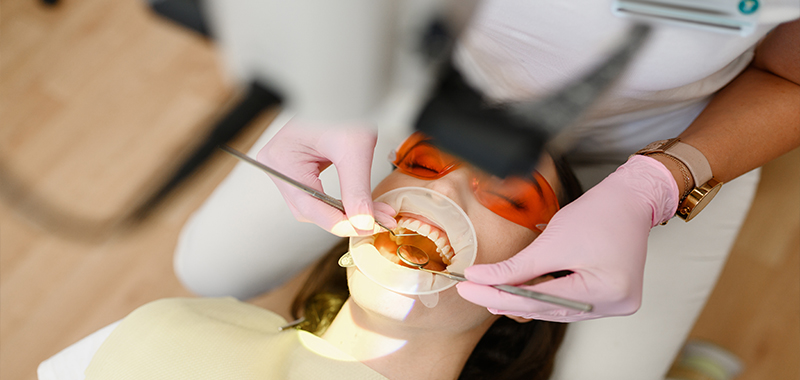
Vitaldent is condemned for trademark infringement on Google Adwords
Brand bidding on Google Ads is an increasingly widespread technique for attracting leads that are looking for a specific service in digital environments.
However, not all practices related to Google Adwords are permitted, as demonstrated in the recent Supreme Court ruling in the case of Clínicas Ortodoncis against Vitaldent. The law firm LETSLAW explains below the key points of this case and why Vitaldent has been ordered to pay half a million euros in compensation.
What reasons led Clínicas Ortodoncis to sue Vitaldent?
During the month of September 2012, the following began to happen: when typing the brand name “Ortodoncis Clinics” into the Google search engine, the results showed ads related to this clinic, however, with the following information “Ortodoncis Clinics – Invisible. Comfortable. www.clinicasvitaldent.info/VitalDent. Removable. Pay in up to 24 months. 900866175”.
In this regard, clicking on that advertisement opened a box with a photograph of Vitaldent, which was, however, still headed with the phrase “Clinicas Ortodoncis” and, whether double clicking on the photograph or on the website address www.clinicasvitaldent.info/VitalDent, opened a new page reading “Vitaldent” and an advertising slogan.
The Court found that these results were not “natural”, but that Vitaldent had contracted with Google as a keyword for the brand name “Clinicas Ortodoncis”. For this reason, the lawsuit filed by Clínicas Ortodoncis was based not only on trademark infringement, but also on acts of unfair competition.
Thus, the judgment handed down at first instance declared that the trademark “Clínicas Ortodoncis” had been infringed by Vitaldent through the Google Adwords service and ordered Vitaldent to pay compensation amounting to 555,240.37 euros for the trademark infringement and 43,821.40 euros for the non-material damage caused.
Why has Vitaldent been sentenced in this case?
The sentence was initially appealed and the fact that Vitaldent had used the trademark “Clínicas Ortodoncis” as a keyword in the Adwords system of the Google search engine was ratified, as well as the fact that the compensation of 1% of Vitaldent’s turnover was also ratified. In response to this new judgment handed down on appeal, Vitaldent filed two new appeals, stating the following reasons:
Firstly, that the doctrine of the Court of Justice of the European Union (CJEU) does admit the use by third parties of the name of a registered trademark in Google Adwords keywords, pointing out that the distinctive sign of the trademark was not used, but only its name, and prohibiting this act would infringe free competition.
However, the Court rejected this plea, since the services offered by Vitaldent were identical to those offered by Clínicas Ortodoncis and the term used as an adword by Vitaldent coincided with the plaintiff’s trademark. Therefore, Vitaldent made use of the trade mark without the consent of its owner, to identify identical services.
The CJEU had already ruled in this regard in the Google France case and in the Interflora case, stating that the advertising offered hardly allows the internet user to determine whether the services included in the advertisement come from the trade mark proprietor or an undertaking economically linked to it or whether, on the contrary, they are from a third party.
Vitaldent did not agree that the compensation should be set at 1% of the total turnover, but that it should be set at 1% of the sales obtained through the use of the trademark “Clínicas Ortodoncis”.
However, the Court pointed out that for those cases in which it is very difficult to quantify the economic damage, the owner of the infringed trademark is allowed to request 1% of the turnover obtained with the services identified with that trademark.
In accordance with the above, in this specific case, the turnover refers not to the services invoiced to those who came to Vitaldent as a result of the advertisement that constituted the trade mark infringement, but to all those services that have been proven to have been advertised through the trade mark infringement, without it being necessary to distinguish which were actually provided as a result of the advertisement and which were not.
In this sense, the reason why Vitaldent has been condemned for infringing the trademark of Clínicas Ortodoncis is that the keyword used was for completely identical services, in a way that did not allow Internet users to distinguish from whom these services came and this generated a risk of confusion among Internet users, and that Vitaldent’s own advertisement included the trademark of Clínicas Ortodoncis.
Thus, although in principle bidding on brand keywords in Google Adwords is permitted, we must be careful when carrying out this widespread practice because it will not be legal in all cases and using someone else’s brand inappropriately can have serious consequences.

Letslaw es una firma de abogados internacionales especializada en el derecho de los negocios.







